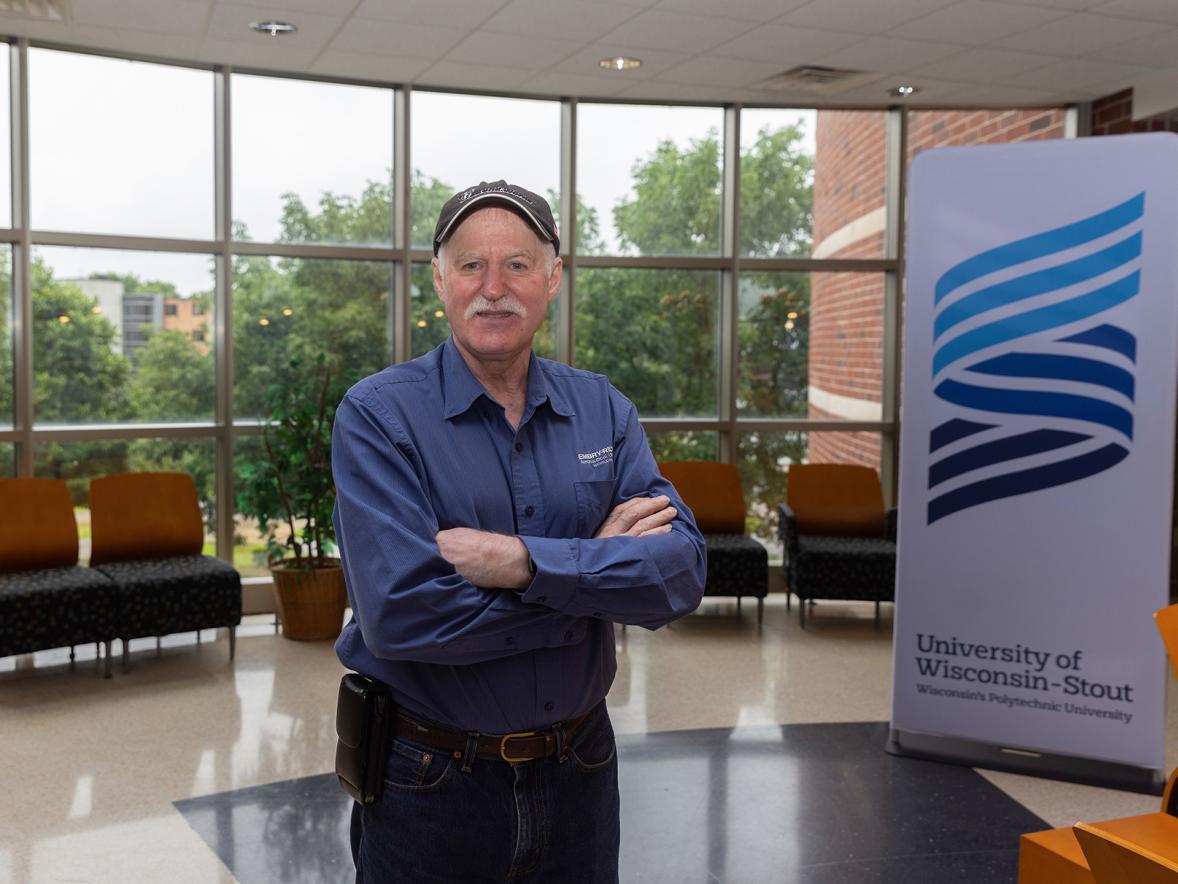For almost 10 years, Cassie Haskins has been diligently working on her future.
The 2010 graduate of Flambeau High School in northwestern Wisconsin has known in the back of her mind what that future could be but has struggled to get there, often because of lack of money.
Haskins initially went to college for accounting but dropped out when her student loans began to quickly pile up. She finished a certified nursing assistant program but wound up working in an unrelated field at a company in her hometown, Glen Flora. Next came a one-year medical assistant program at a technical college and a good job in Eau Claire, but she knew it still wasn’t enough.
Something told her she could do more. “I was always good in the sciences in high school,” Haskins said.
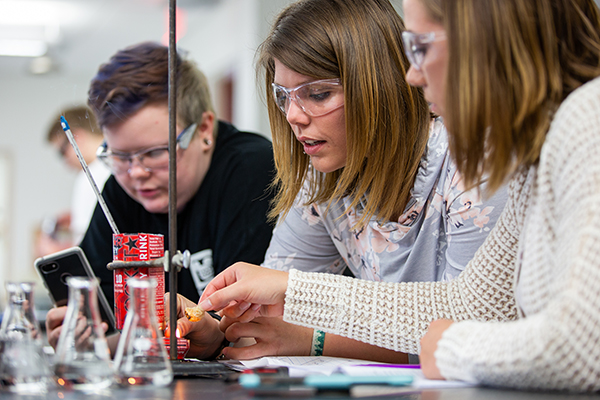 In 2018, she applied and was accepted at University of Wisconsin-Stout. She enrolled in the Bachelor of Science program in applied science and moved to Menomonie.
In 2018, she applied and was accepted at University of Wisconsin-Stout. She enrolled in the Bachelor of Science program in applied science and moved to Menomonie.
Finally, she was on the road to the future she envisioned — one she hopes will end with two years of graduate school in a physician assistant program.
Along with determination, what has made the difference? It was discovering she could get significant financial help from the federal Pell Grant program.
As a first-generation college student and single mother without outside financial support, she likely wouldn’t have gone back to school without the grants, which have covered up to one-third of her expenses, she said.
“The financial aid was a determining factor in enrolling at UW-Stout. I was blown away by the amount of grants I was able to get toward education,” she said, noting that Pell awards also helped her finish the medical assistant program.
Haskins was one of 2,072 students at UW-Stout, out of close to 9,000, who received a Pell Grant during the 2018-19 academic year. That number has remained fairly steady in recent years, according to Beth Boisen, Financial Aid Office director at UW-Stout.
About 7.5 million college students in the U.S. benefit from the Pell program. Recently, the program was in the news when President Trump proposed using reserve Pell funds to increase in funding for NASA, as well as a House Appropriations subcommittee voting to increase the maximum Pell grant by $150 to $6,345.
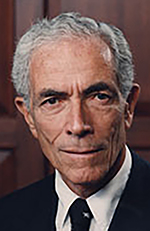 The average Pell Grant during the 2017-18 academic year for UW System students was $3,950. Grant amounts vary depending on financial need, tuition costs, whether a student is full time or part time and other factors.
The average Pell Grant during the 2017-18 academic year for UW System students was $3,950. Grant amounts vary depending on financial need, tuition costs, whether a student is full time or part time and other factors.
The Pell Grant program, named after former U.S. Sen. Claiborne Pell, of Rhode Island, dates to 1965, when it was created as part of the Higher Education Act and known as the Basic Educational Opportunity Grant.
“Stories like Cassie’s reinforce our efforts with our federal delegation to not only preserve Pell grants but expand the program,” said Chancellor Bob Meyer. “Pell grants play an essential role in making a UW-Stout education possible for many, many students.”
Education expenses add up
Even with the grants, returning to school hasn’t been easy for Haskins. While enrolled full time, she has been working two part-time jobs, as a bartender at a local restaurant and as a program assistant in the UW-Stout chemistry and physics department.
With remaining tuition expenses, child-care costs, rent, food and more she still has had to take out student loans to make ends meet. “I live month-to-month with bills,” she said.
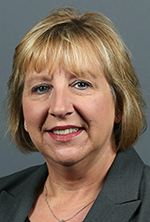 That’s typical for Pell Grant recipients, Boisen said.
That’s typical for Pell Grant recipients, Boisen said.
“High-need students need all the gift aid they can possibly receive to make education affordable,” Boisen said. “Normally if the student is receiving Pell they are also receiving a Wisconsin Grant — if they are from Wisconsin — so that is an additional layer of help.”
Even combined, the aid programs won’t cover tuition “much less room and board. There are a few other state funds that could assist a high-need Wisconsin resident, but normally most of our students have unmet financial need,” Boisen said.
Various types of financial aid, including Pell Grants, help about 70 percent of UW System students.
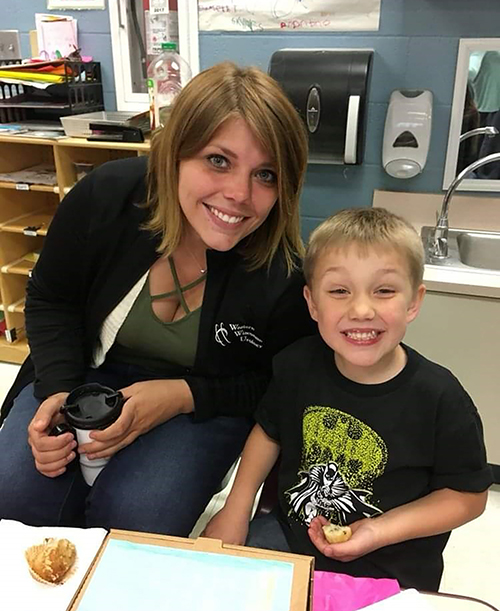 Haskins expects to graduate in 2021 and then look into physician assistant programs, the equivalent of earning a master’s degree. The average starting salary for a physician assistant is about $100,000, which would help Haskins pay off her loans and provide a stable income for herself and her son.
Haskins expects to graduate in 2021 and then look into physician assistant programs, the equivalent of earning a master’s degree. The average starting salary for a physician assistant is about $100,000, which would help Haskins pay off her loans and provide a stable income for herself and her son.
UW-Stout’s applied science program has several preprofessional tracks that prepare students for medical and related fields. Haskins, who has received the Chancellor’s Award for academic achievement, likes the hands-on nature of the program and the one-on-one work with professors.
Her spring semester courses included calculus, statistical methods and chemistry. She also plans to take eight credits during the summer. She has an interdisciplinary science concentration and will minor in human physiology.
Although Haskins is taking longer than the average young adult to reach her goals, she’s excited to be on the right track and thankful the Pell program exists to help make it possible.
“The Pell Grant program helps so much. I wish it was something we could promote more. To get right out of the gates and not have too much to pay back is so important to students,” she said.
More information on the program is available at the U.S. Department of Education Pell website.
###
Photos
Cassie Haskins, center, works in a chemistry lab in UW-Stout’s Jarvis Hall Science Wing.
Claiborne Pell
Beth Boisen
Cassie Haskins with her son, Quentyn.





